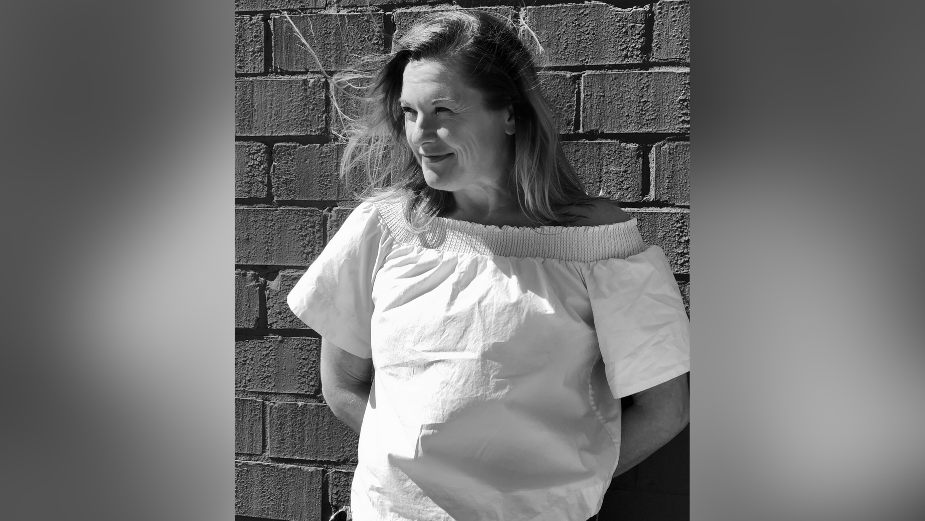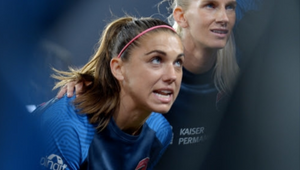
Meet Your Makers: Jen Sienkwicz

Jen Sienkwicz joined Uppercut Atlanta as executive producer after working in the New York market for over 20 years. For her, coming back to the Atlanta is like coming home – a UGA grad, Jen got her start at Dennis Hayes & Associates/Atlanta before moving to the NY office. From there Jen enjoyed stints at several editorial companies including Jump, Crew Cuts, Berwyn Editorial and FinalCut where she produced innovative work for Pepsi, AT&T, Cotton, NFL and Jaguar - just to name a few. She brings her deep passion for the creative process back to her Atlanta roots and is beyond thrilled to have come full circle to a town she deeply loves and excited to again call home.
LBB> What first attracted you to production - and has it been an industry you’ve always worked on or did you come to it from another area?
Jen> I came from the agency side of this world. I was at an ad agency working as a Jr. AE on a spot for the Atlanta Journal-Constitution and I found myself always hanging out with the art department and the creative folks working on the project. I was very inquisitive and they were kind enough to include me in the process of the ins and outs of making a TV commercial. I found it fascinating.
I toyed with the idea of becoming an editor but my brain works so well on an organizational level that I naturally ended up gravitating towards production. So I left the agency world and high-tailed it over to post.
LBB> What was your first role in the production world and how did this experience influence how you think about production and how you grew your career?
Jen> I got my start at Dennis Hayes & Associates. They had an Atlanta outpost for a few years before the Olympics. He had done so much iconic work: Mean Joe Green, Max Headroom…. sitting with Dennis and asking him how to do the spots he did was like a master class. He was super generous with his time, as were all the editors there.
It was so interesting to hear how he figured out how to achieve certain post FX before the Flame even existed. Being a producer there and watching a project go from start to finish was so incredibly cool to me. It still is. It’s why I still do it.
Mentorship is a really important part of finding your way in this business. I’ve had some great ones and I want to return the favor to other people who want to do what I do.
LBB> How did you learn to be a producer?
Jen> I was fortunate to work at some of the best post houses in NYC early in my career under the mentorship of some very talented people. Those early experiences were my foundation for learning how to be a creative and thoughtful producer: how to be efficient with my thoughts, how to ask the right questions as I was reviewing scripts and storyboards, how to collaborate with the editors to protect their creative process, and how to be the best partner to our clients. Being a good producer, is to me, a lot like improv, where a hard ‘no’ is never the right answer but more like “yes and…” how can we get that done?’
Rosemary Quigley, who was the EP at Dennis Hayes & Associates, jokingly used to say I’m going to give you enough leash to run around in the yard but I’m not gonna let you get hit by a car. If she saw talent in young producers, she invested the time in bringing us up and showing us the ropes. She gave me chances and if I needed help with something she would help me - but it was boots on the ground learning by doing. That’s how someone working in the post sphere really learns. Go to sessions, learn the terms, etc. A producer’s job is to know how it all works technically but also be able to distill that for an agency producer who just wants to know how the magic works.
LBB> Looking back to the beginning of your career, can you tell us about a production you were involved in where you really had to dig deep and that really helped you to grow as a producer?
Jen> There’s no one specific production. I’ve worked on so many things. But asking questions and not trying to bluff your way through knowing something was really key. Ask the questions so you learn and know in the future.
LBB> A good producer should be able to produce for any medium, from film to events to digital experience. Do you agree or disagree with this statement? Why/why not?
Jen> There are certainly nuances to this. But for me, it all goes back to not being afraid to ask questions. If something falls in your lap that you haven’t done before, do due diligence and research. Equip yourself with the right team and ask the right questions. Once you have that information you can determine whether the project is the right fit for you and your team.
LBB> What’s your favourite thing about production and why?
Jen> I really love that I’m always challenged, on every project. Sometimes it’s the insane schedule, sometimes it’s a project that has really great creative but a not-so-great budget. I really love that I’m always learning something new, that the technology on how stories are both shot and finished is ever-evolving and that part of my job is keeping up with and understanding the new tools that we all have at our disposal. And for sure 2020 brought a whole new set of challenges and learning experiences, having to navigate working remotely in an industry that is hyper collaborative.
LBB> How has production changed since you started your career?
Jen> Gosh, it’s changed immensely. When I was starting out, actual film was still being shot for commercial projects and the very nature of working with film–––processing the negative, getting the dailies made, time to screen all of the dailies, etc.–––meant we had longer schedules for the editors to craft a story. Digital filmmaking was still in its infancy. Post-production timelines have shrunk, along with budgets and we somehow seem to get more footage from digital shoots these days but we’re still challenged to bring our A-game to every project and for our editors to be even more creative to put out good work within a tighter time-frame.
LBB> And what has stayed the same?
Jen> For me, the thing that has been a constant is the desire to work with talented editors who tell really good stories. I love watching the first pass on the edit with my editors and talking about it, often before the agency sees the first cut. Just watching words on a page come to life is really a fun experience for me.
LBB> What do you think is the key to being an effective producer - and is it something that’s innate or something that can be learned?
Jen> Producers have to show grace under pressure and the ability to quickly ID the challenges that come up on every job and to find ways to keep the train on its tracks. No job is ever going to go 1000% according to plan. I think some people are just wired to be effective problem solvers without ruffling too many feathers and those people make great producers.
LBB> Which production project from across your career are you most proud of and why?
Jen> It’s hard to pick a favorite there are so many I’ve worked on that I’m proud of. Everything from a PSA with no money that everyone believes in, to big beautiful budget stuff. Many of my favorite projects these days are produced by the producers who are working under my supervision. This goes back to that idea of mentorship and being able to help bring people up in the business by instilling in them the confidence and a foundation that they can successfully build upon.
LBB> And in terms of recent work, which projects have you found to be particularly exciting or have presented particularly interesting production challenges?
Jen> One of the biggest challenges we’ve encountered over the last year has to do with the pandemic. How do you work from home, how do you make user-generated content shine in a creative way, how do you effectively collaborate remotely?
LBB> Producers always have the best stories. What’s the hairiest / most insane situation you’ve found yourself in and how did you work your way out of it?
Jen> I don’t want to incriminate anyone. Let’s just say I’ve learned how to manage a lot of very big personalities over the years.
LBB> What are your personal ambitions or aspirations as a producer?
Jen> I want to set the next generation of producers and cutting assistants up for success. It comes down to mentorship. Giving encouragement and constructive feedback. One of my producers used to joke that I’m firm but fair. But it goes back to producing being a little like improv. It’s always yes and…
My next ambition is to continue to expand Uppercut Atlanta, bringing even more offerings and diverse talent to the table for our growing base of clients in the Southeast.
LBB> As a producer your brain must have a neverending "to do" list. How do you switch off? What do you do to relax?
Jen> I have so many lists circulating thru my brain all the time. I don’t know that the switch is ever really off but my creative outlet is cooking. I love to look in my pantry + fridge, take stock of what I have on hand to make something really tasty.
LBB> What advice would you give to people who are interested in becoming a producer?
Jen> Find a good mentor and never be afraid to ask as many questions as are needed to understand the answer. The only dumb question is the one not asked.
LBB> What’s the key to a successful production-client relationship?
Jen> Open communication and transparency.
LBB> Producers are naturally hands-on - they have to be. How do you balance that in the more managerial role of an EP?
Jen> It’s hard to let go of the day-to-day. I love actively producing jobs. At the same time, there’s nothing better than seeing other people who work for and with me succeed, and finding and nurturing that talent.













